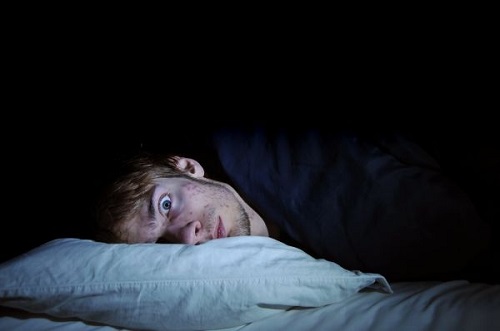While fear is a natural response to danger, phobias often occur in response to something unlikely to cause real harm. Phobias are characterized by irrational fear, distress, and often lead to the person avoiding the source of their fear.
While most people have heard of common phobias, like the fear of heights (acrophobia) or the fear of spiders (arachnophobia), there are many strange, less talked about phobias. Here is a list of some weird phobias you may have never heard of:
- Arachibutyrophobia: Fear of peanut butter sticking to the roof of your mouth

The extremely hard to pronounce phobia is also an extremely inexplicable one – the fear of peanut butter sticking to the roof of the mouth.
Some with this condition may be able to eat small amounts of peanut butter while others will avoid eating peanut butter or anything with the consistency of peanut butter altogether.
Arachibutyrophobia can stem from a greater phobia of things that are sticky or a fear of choking. While peanut butter is clearly not obligatory for a healthy and satisfactory life, arachibutyrophobics could miss out on the speculated health benefits of peanut butter, including its abilities to lower cholesterol and help ward off heart disease.
- Nomophobia: Fear of being without Phone
Topping the list for bizarre and unusual phobias is the modern affliction, nomophobia. Nomophobia is the fear of being without your mobile phone. It is believed that over 50 percent of cell phone users are affected by nomophobia.
People with nomophobia experience excessive anxiety about not having their phone with them, their battery being low or their phone being out of service. People with this phobia may obsessively check their phone throughout the day.
- Hippopotomonstrosesquippedaliophobia: Fear of long words
Ironically, hippopotomonstrosesquippedaliophobia is also the longest word in the dictionary. Another simple name for this phobia is sesquipedalophobia.
This phobia is thought to develop from being embarrassed by pronouncing long words incorrectly. This may occur while reading aloud in front of the class as a child. The phobia can also be common in people with dyslexia.
- Spectrophobia: Fear of mirrors
Spectrophobia is a fear of mirrors and one’s own reflection. The phobia tends to stem from a traumatic event involving mirrors – perhaps the fear of apparitions or ghosts being in the mirror – or low self-esteem related to one’s physical appearance.
- Globophobia: Fear of balloons
Globophobia is usually brought on by a traumatic experience with a balloon as a child, such as a balloon popping and the noise frightening them.
It can also be linked to a fear of clowns (or coulrophobia), as the two are often found together. Fear levels vary from person to person and can range from avoiding being near balloons to avoiding places with balloons altogether.
- Chorophobia: Fear of dancing

It is the fear of dancing and is something that, unfortunately, even alcohol can’t fix. The phobia is usually associated with social phobias – particularly fear of crowds.
Regardless of danceability and whether or not you are required to hit the dance floor, any situation or event that relates to dancing can be a source of fear for chorophobics.
- Euphobia: Fear of Hearing good news
After all who doesn’t like hearing good news? Well, people with euphobia don’t. Instead of feeling elated at hearing good news, they feel anxious and start panicking.
Possible reasons for developing euphobia could be a persistent disappointment after hearing good news that didn’t turn out to be true.
- Clinophobia: Fear of going to bed
This abnormal and persistent fear of going to bed and sleeping could stem from worrying about having nightmares or a problem controlling bedwetting. Clinophobia can develop into insomnia which can be greatly detrimental to a person’s health.
- Claustrophobia: Fear of tight spaces
Claustrophobic individuals might avoid entering elevators or small, windowless rooms.
Claustrophobia, on the other hand, is the fear of being stuck in an enclosed space. Estimates say that around 5-7% of the world population struggle with this phobia.
For instance, they’ll take the stairs instead of the elevator, even when they need to climb 30 floors; similarly, they’ll walk instead of ride the metro, even when they have to travel more than a couple of miles.
- Agoraphobia: The fear of open or crowded spaces
The following are typically what bring on stress and anxiety characteristic of this phobia: large open spaces, public transportation, and leaving the house alone. This phobia can cause its sufferers serious distress, both physically and mentally.








